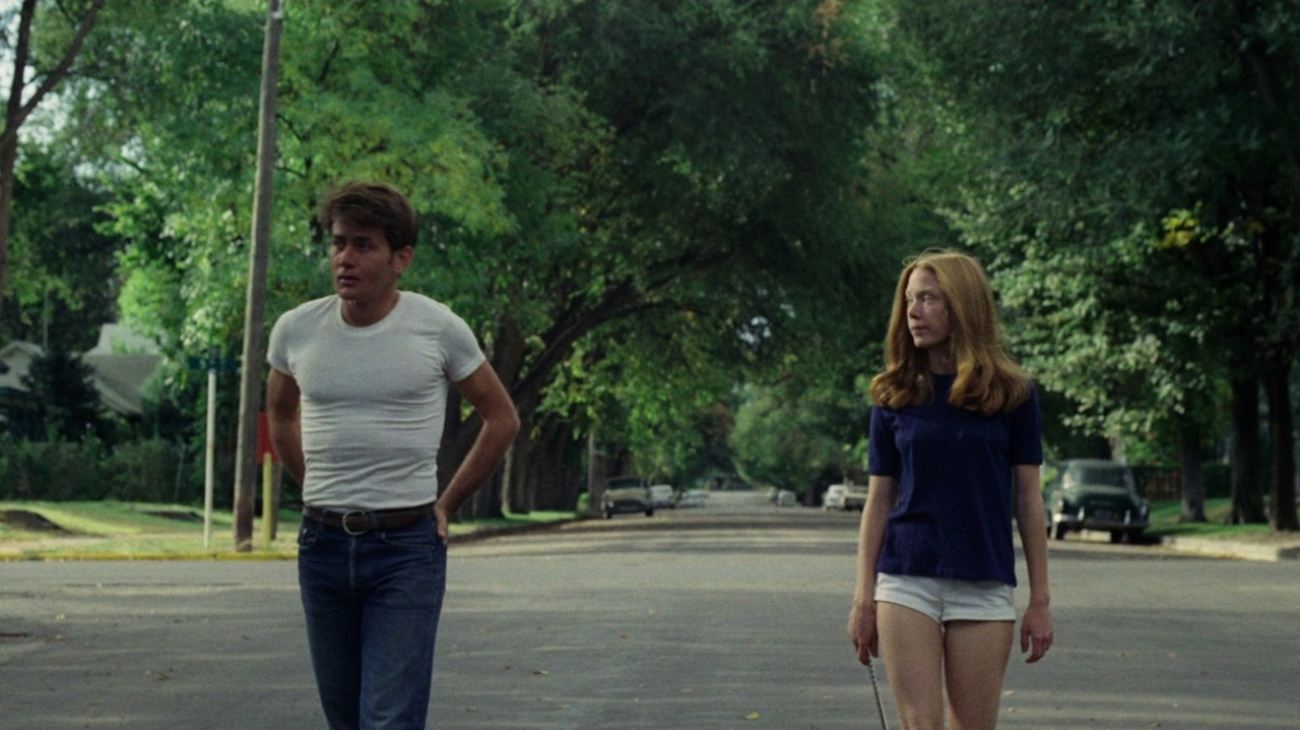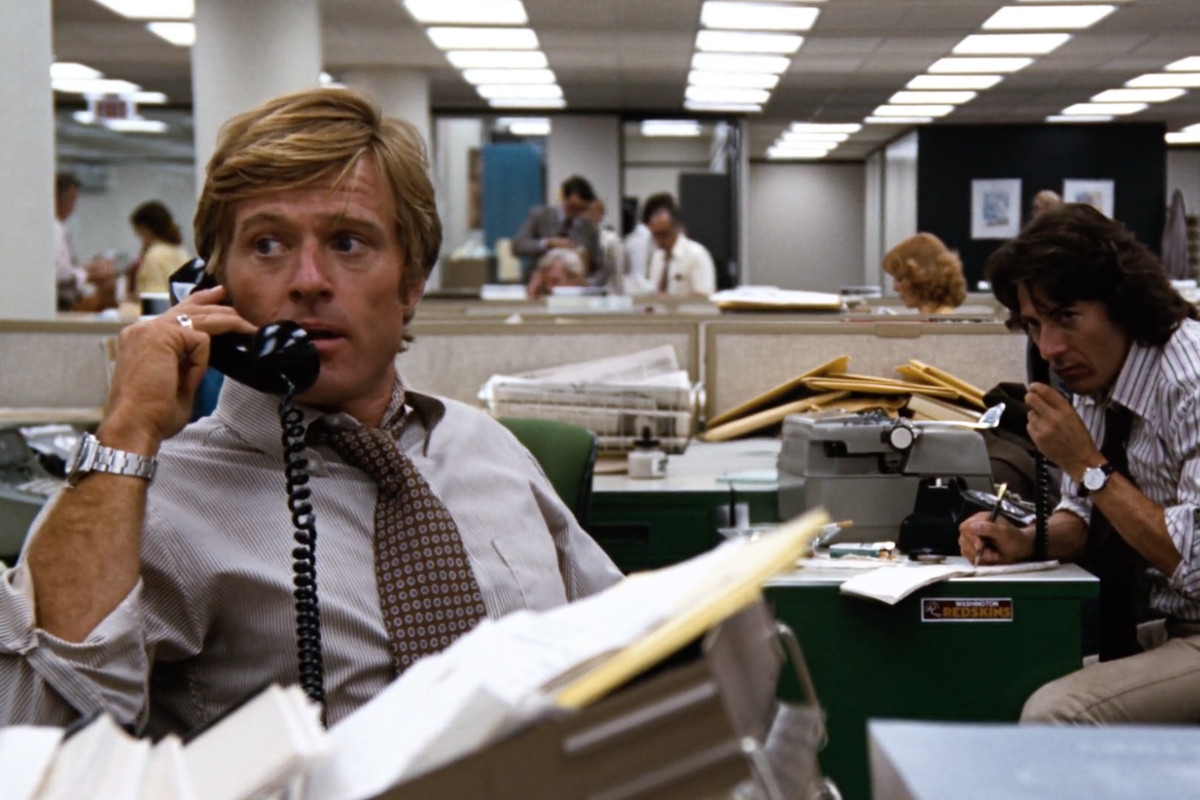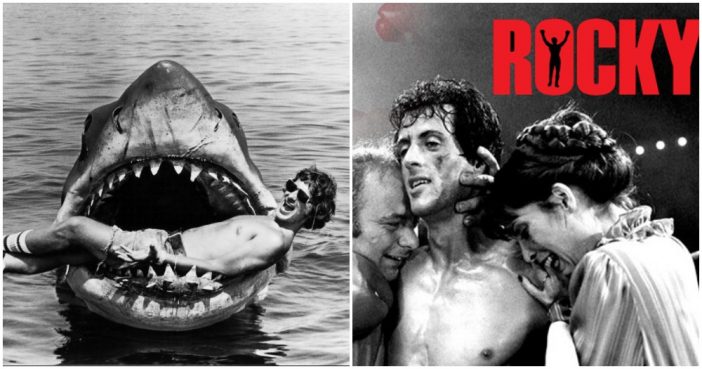
11. Jaws
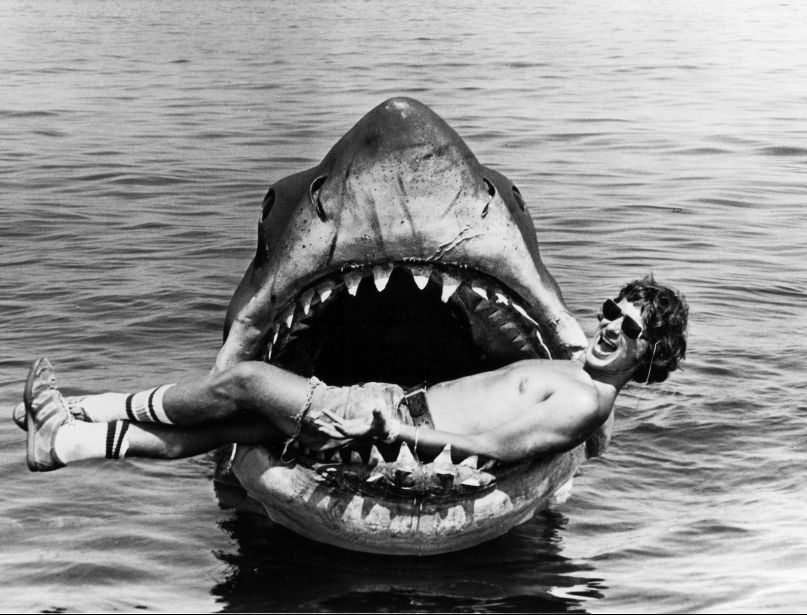
‘You’re gonna need a bigger boat’. You can’t talk about the film in the 1970s without talking about Jaws. Spielberg’s 1975 monster movie birthed the blockbuster and changed the face of American motion pictures forever. The idea is, as all good ones are, a simple one: man versus shark. In the hands of a lesser director, this would be an excuse for a cinematic bloodbath, but Spielberg chose to go another direction and the results are spectacular.
The shark (which Spielberg admitted to being fake-looking) is rarely glimpsed throughout the film’s runtime. This just builds up audience suspense and, when the shark finally surfaces, the popcorn flies.
There are some truly ingenious scares in Jaws and audiences flocked in droves to see them. Made for $9m, the film grossed $470m at the box-office (and millions more in merchandise). Suddenly, films were released on thousands of screens simultaneously with huge advertising campaigns. The film industry never looked back. A watershed moment (pardon the pun).
Let’s check back in on the wonderful cast of Jaws:
12. The Exorcist

‘Something beyond comprehension is happening to a little girl on this street, in this house. A man has been called for as a last resort to try and save her. That man is The Exorcist.’ Jaws may have been the first blockbuster, but The Exorcist certainly set the ball in motion two years earlier in 1973. The Exorcist, like Jaws, was also base on a best-selling novel and made on a modest budget ($12m). It grossed over $400m at the box-office, launching director William Friedkin onto the A-list and creating a pop culture phenomenon. Let’s face it, everything has parodied The Exorcist at some point. The film had a troubled shoot, with the tyrannical Friedkin doing his best to scare or piss off everyone that he could (he fired a gun next to Jason Miller’s head and slapped a priest to get the right reactions for a scene).
There have also in the years since been claims that the production was cursed, as an unusually high amount of people associated with the film died and other spooky things went one. The film was a hit with critics and audiences, amassing ten Academy Award nominations and becoming the first horror film to be directed for Best Picture (it lost to The Sting). The Exorcist, an expertly made film, is one of the scariest of all time and still has the power to frighten when watched today.
13. One Flew Over The Cuckoo’s Nest

‘If he’s crazy, what does that make you?’ Milos Forman’s 1975 drama film about a seemingly sane man’s stay in a mental institution was only the second film in history to win all five of the major Academy Awards after 1934’s It Happened One Night. One Flew Over The Cuckoo’s nest is good value for it too as the film has many moments of brilliance. Jack Nicholson steals the show (naturally), but the supporting players are given a chance to shine as well. Watch out for a young Danny DeVito and a debuting Brad Dourif.
The onscreen battle between Nicholson’s Randle Murphy and Louise Fletcher’s wicked nurse has been read as a personification of the 1970s culture wars. Keeping it authentic (as was often the case on 1970s productions), most of the actor’s chose to stay in character when not filming and many of the extras were actual patients at the hospital.
14. The Conversation
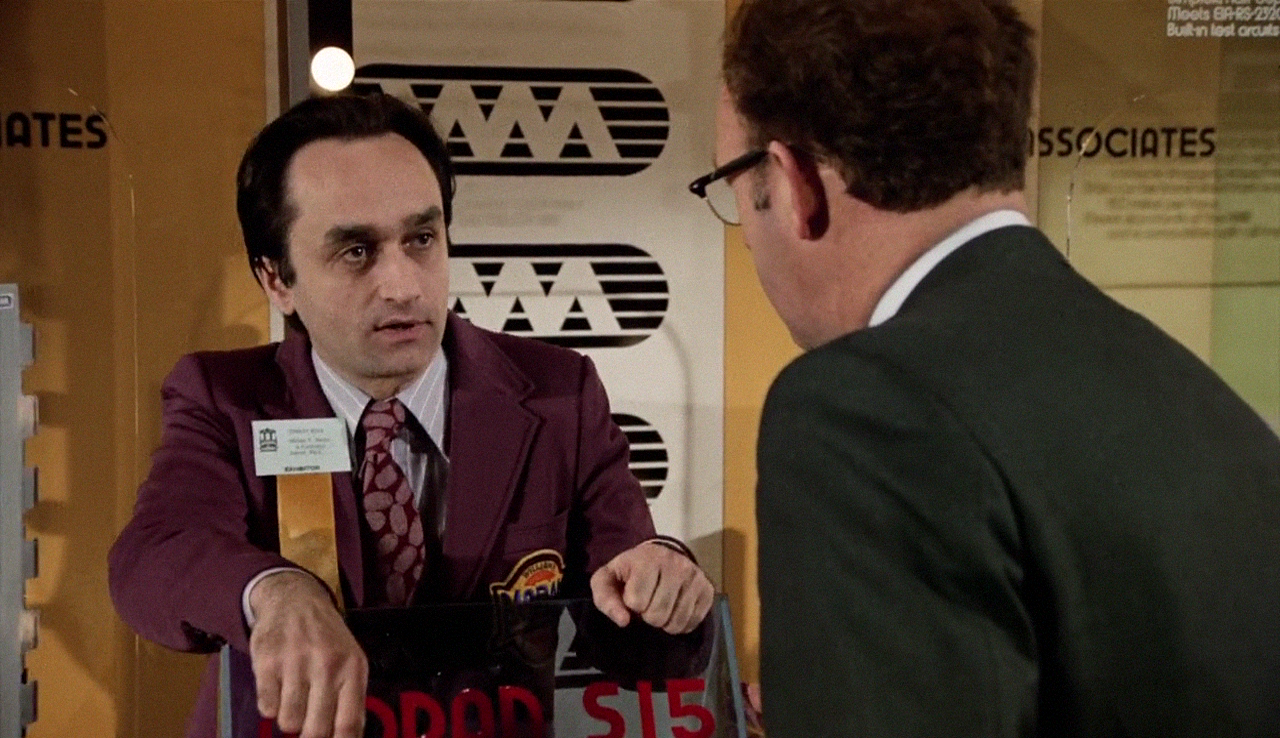
‘Harry Caul is an invader of privacy. The best in the business. He can record any conversation between two people anywhere. So far, three people are dead because of him.’ Gene Hackman was just one of many actors who had their best years in the 1970s. Hackman’s output throughout the decade was impressive, if not erratic, and he had great turns in films as varied as Superman, Prime Cut, The French Connection, Night Moves and the underrated Scarecrow. Hackman was one of the decade’s best actors and in The Conversation, it could be argued that he gives his best performance as Harry Caul, a surveillance expert who has a crisis of conscience when he starts to think that the couple he is spying on is going to be murdered. Taking cues from Michelangelo Antonioni’s Blow-Up, the film goes into extreme detail exploring themes such as perception versus reality and duty versus occupation.
The film was released just a few months before Watergate, causing some to believe that the film is a commentary on the scandal. The Conversation was nominated for Best Picture, but lost to The Godfather: Part II, another Francis Ford Coppola film. The director really did have the Midas touch for a time in the seventies. A tension-filled piece of 1970’s paranoia that you need to see if you haven’t already.
15. Harold And Maude
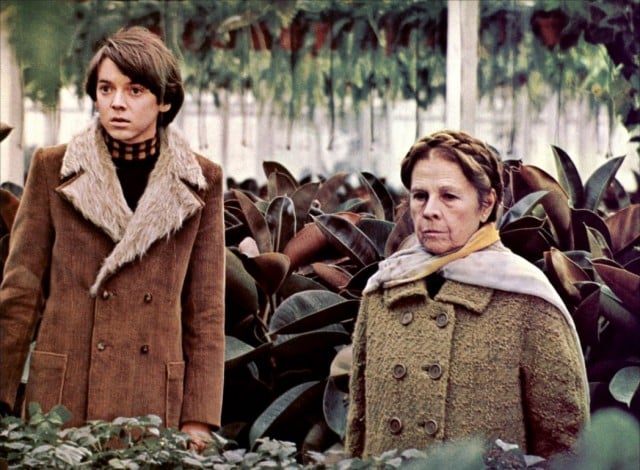
‘This is Harold. Fully equipped to deal with life. This is Maude. Harold’s girlfriend’. Harold And Maude, Hal Ashby’s jet-black romantic comedy, was strange even by the standards of the seventies. When Ashby and Colin Higgins took the screenplay to Hollywood executives, they were told they were nuts. Nobody, they argued, wanted to see a romance between a 20-year-old man and a 79-year-old-woman.
They also objected to the scenes of Harold faking his death and some other aspects of the story. And wouldn’t you know it when the film came out many critics had issues with the black humour and the age difference between the two title characters. In recent years the film’s reputation has been rehabilitated and it is now regarded as a cult classic and a midnight movie favourite. There’s no denying the film’s heart or its great Cat Stevens soundtrack.
16. Aguirre, The Wrath Of God
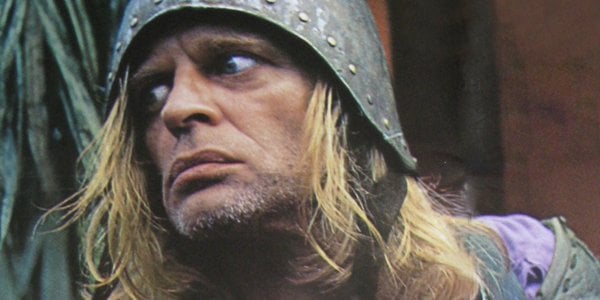
‘On this river, God never finished his creation’ Aguirre is as famous for its off-screen troubles as it is for its breathtaking cinematography and performances on. It was the first of five collaborations between director Werner Herzog and actor Klaus Kinski and it was, to say the least, an inauspicious start for the team. The film may have been about a soldier who goes mad in the Amazonian jungle, but it was Kinski himself who seemed to be losing his mind during the shoot.
Actor and director clashed frequently about how Kinski should play and eponymous Aguirre, usually resulting in a Kinski throwing a massive tantrum and berating Herzog, his crew and the local natives. Kinski got so wound-up by the sound of the cast and crew playing cards in a nearby hut that he fired three gunshots at it. Kinski decided to leave the set, but Herzog, ever the diplomat, told him in no uncertain terms that if he left that he would have to shoot him first. The Kinski/Herzog relationship is documented in detail in Herzog’s documentary My Best Fiend. Aguirre, as a film, is a masterpiece. All of the trouble was worth it in the end.
17. Badlands
‘At times it looked like it might cost them their jobs, their reputations, and maybe even their lives.’ The paranoid political thriller was a staple of 1970s cinema. Hey, why not? With Vietnam, political assassinations and Watergate happening around them Americans had a right to be paranoid. All The President’s Men is the true story of two journalists investigating the Watergate scandal and the cover-ups they encounter and missing pieces they try to solve. It was directed by Alan J. Pakula, forming part of his informal ‘paranoia’ trilogy of seventies films along with Klute and The Parallax View (both of which are also worth your time).
Much care was taken to remain as authentic as possible to the real-life story and the production reproduced everything to replicate a real newsroom at great expense. Nothing was allowed in the script unless it had been verified by someone in-the-know. All The President’s Men features one of many great 1970’s Dustin Hoffman performances. Robert Redford isn’t half bad, either.
19. The Godfather/The Godfather: Part II
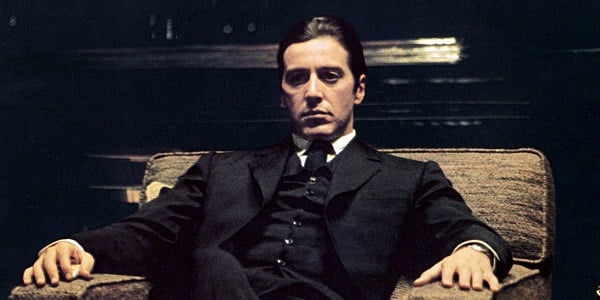
‘An offer you can’t refuse’ It sounds clichéd to talk about how The Godfather and The Godfather: Part II are two of the greatest films of all time, but there’s no getting around it. They just are and it’s as simple as that. Francis Ford Coppola was on a hell of a roll in the 1970s, directing classics like The Conversation and Apocalypse Now, but the first two Godfather films stand as his greatest achievement. The story of Michael Corleone’s rise to power in the Corleone crime family is an epic tale of betrayal, power and murder that could have only been made this well in the 1970s. Based on Mario Puzzo’s best-selling novel of the same name, the film was a smash hit at the box-office, making $285m well above its $7m budget. But Coppola had to fight to get his vision up on screen, with executives determined to remove Al Pacino (whom they referred to as “that midget”) from the film.
Coppola stuck to his guns and Pacino stayed in the film. The result was one of the best performances in film history (although Pacino would have to wait twenty years to receive an Academy Award). The Godfather has many exceptional performances, not least of which is Marlon Brando’s cotton-mouthed Don Corleone. Part II defies convention as being one of the only sequels in film history that people claim is better than the first. The Godfather Parts I and II are films to be studied and savoured. They are masterclasses in filmmaking and storytelling. Shame about the third one, eh?
20. Taxi Driver

‘On every street in every city, there’s a nobody who dreams of being a somebody’ Oh, come on you didn’t really think that there wouldn’t be at least one Martin Scorsese film on a list of great seventies films, did you? Marty made some amazing films in that decade and Mean Streets and Alice Doesn’t Live Here Anymore just narrowly missed the cut. Taxi Driver, however, simply has to be included, as it is one of the quintessential seventies films. The Palme d’Or winning movie is a terrifying insight into the mind of an alienated man who wants to ‘clean up’ the New York City streets. Not with a dustpan and brush mind you, but by rescuing a 12-year-old prostitute and killing her pimp. Taxi Drive is a rich, complex film that sees Scorsese on top of his game. Robert De Niro gives one of the all-time great performances as Travis Bickle.
De Niro, ever the method actor, got his own cab license and did twelve-hour shifts while researching the role. No film so expertly captures the seedy underbelly of seventies New York, with all of its porn theatres and debauchery. The film was controversial when it was released, coming into conflict with the MPAA over the bloody nature of the film’s climax and the young age of Jodie Foster’s character. Like a fine wine, Taxi Driver only gets better with age. If ever you needed proof that the 1970s were the decade for cinema, this is it. Is the ’70s really the best decade? What other classic 1970’s movies were missed? Get the discussion going down in the comments. (Credits)
Specifically, let’s look at the incredible car chases these films brought to life…
RELATED: Watch The New Trailer For ‘Fantasy Island’: A Campy 1970s TV Series Turned Horror Film

